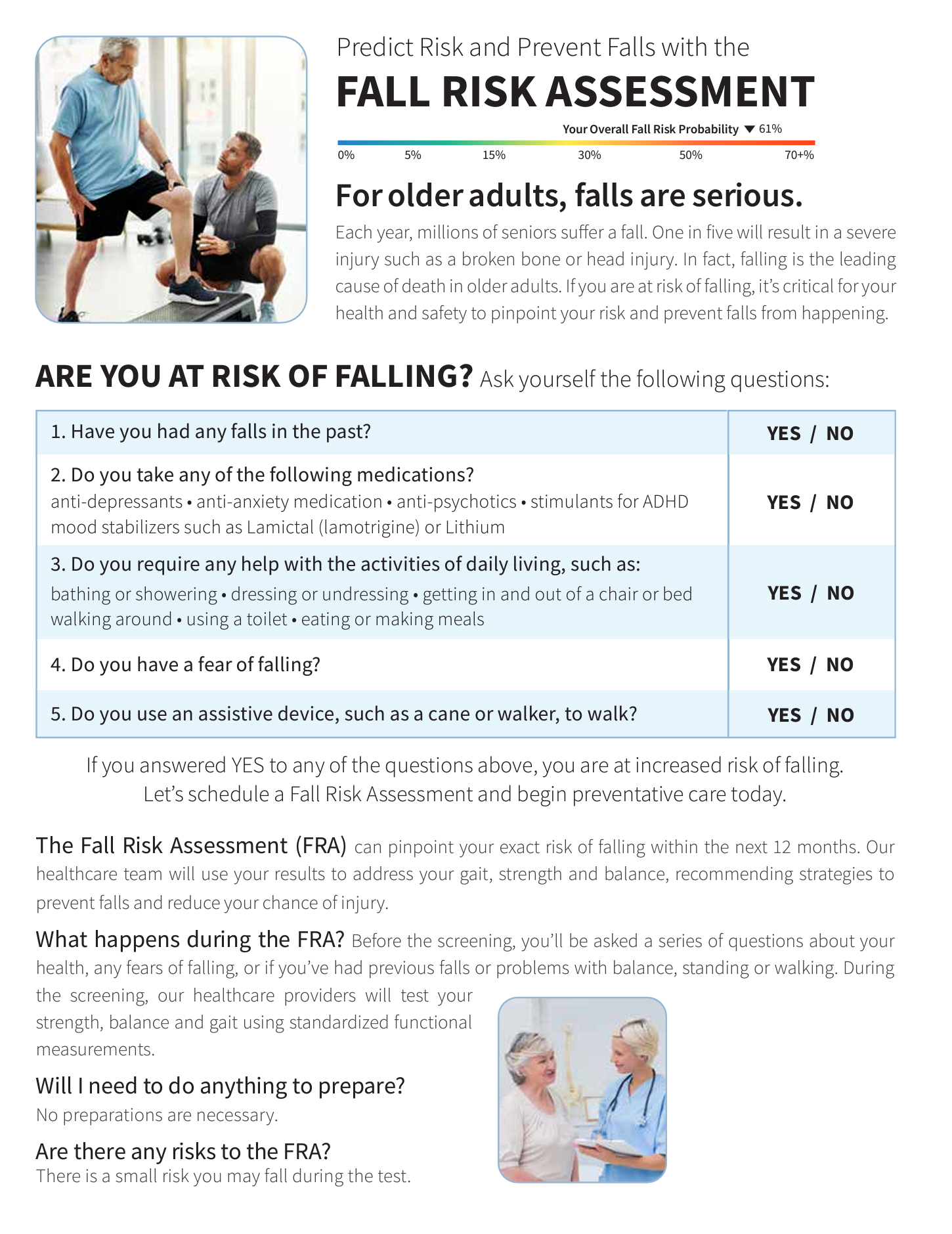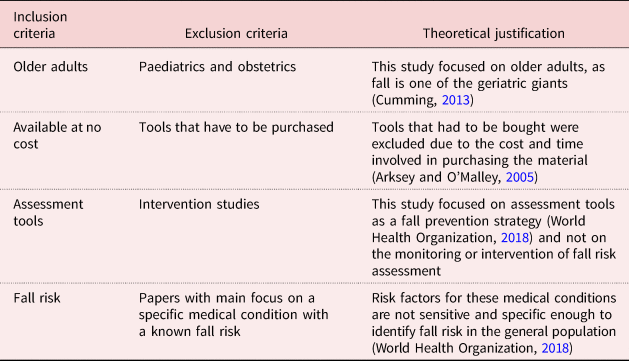The 3-Minute Rule for Dementia Fall Risk
The 3-Minute Rule for Dementia Fall Risk
Blog Article
Excitement About Dementia Fall Risk
Table of ContentsAbout Dementia Fall RiskDementia Fall Risk Can Be Fun For Anyone7 Simple Techniques For Dementia Fall RiskNot known Facts About Dementia Fall RiskA Biased View of Dementia Fall Risk
In the community, poor road illumination or vulnerable creeks and garbage dumps might likewise trigger mishaps. Autumns Risk Evaluation Tool (FRAT) is a 4-item falls-risk testing tool for sub-acute and residential treatment. The FRAT has 3 sections: fall threat standing, threat aspect list, and action plan. An Autumn Danger Status includes information regarding history of current drops, medications, psychological and cognitive status of the patient.If the client scores on a threat element, the matching number of factors are counted to the person's autumn danger score in the box to the far. If a patient's fall risk rating totals five or greater, the individual is at high risk for falls. If the patient ratings only 4 factors or lower, they are still at some risk of falling, and the nurse should use their finest professional assessment to manage all loss danger variables as component of a holistic care plan.
These standard methods, in general, aid establish a risk-free environment that lowers unexpected drops and marks core preventive steps for all clients. Indicators are essential for people at risk for falls.
The 8-Minute Rule for Dementia Fall Risk
Wristbands ought to include the client's last and initial name, day of birth, and NHS number in the UK. Only red shade needs to be used to indicate unique person status.
Items that are as well much may need the patient to reach out or ambulate unnecessarily and can possibly be a threat or add to drops. Helps stop the patient from going out of bed with no assistance. Nurses react to fallers' phone call lights quicker than they do to lights started by non-fallers.
Aesthetic disability can substantially create drops. Hip pads, when put on correctly, might lower a hip fracture when fall occurs. Maintaining the beds closer to the floor reduces the threat of drops and major injury. Positioning the bed mattress on the flooring dramatically minimizes autumn danger in some healthcare settings. Low beds are designed to decrease the range an individual drops after moving out of bed.
The Ultimate Guide To Dementia Fall Risk
Patients that are high and with weak leg muscles who attempt to remain on the bed from a standing position are likely to fall onto the bed since it's also low for them to reduce themselves securely. If a high individual attempts to obtain up from a low bed without support, the client is most likely to drop back down onto the bed or miss out on the bed and drop onto the flooring.
They're created to advertise prompt rescue, not to stop falls from bed. Distinct alarm systems can additionally advise the client not to rise alone. Using alarm systems can likewise be a replacement for physical restrictions. In addition to bed alarm systems, boosted guidance for risky individuals additionally may help stop falls.

Clients with a shuffling stride rise autumn possibilities significantly. To decrease loss threat, footwear ought to be with a little to no heel, thin soles with slip-resistant step, and support the ankle joints.
The Definitive Guide for Dementia Fall Risk
In a research, homes with sufficient illumination report less drops (Ramulu et al., 2021). Enhancement in illumination at home might reduce autumn rates in older grownups.

Sitters work for guaranteeing a safe and secure, protected, and secure environment. Research studies demonstrated really low-certainty proof that caretakers reduce autumn danger in severe care healthcare facilities and just moderate-certainty that alternatives like video clip tracking can decrease caretaker use without boosting autumn risk, recommending that sitters are not as valuable as originally believed (Greely et al., 2020).
Fascination About Dementia Fall Risk

Increased physical fitness reduces the threat for falls and limits injury that is endured when fall transpires. Land and water-based exercise programs may be in a similar way useful on balance and gait and thus you can find out more lower the threat for falls. Water workout might add a positive advantage on equilibrium and stride for women 65 years and older.
Chair Rise Workout is a basic sit-to-stand exercise that helps reinforce the muscles in the upper legs and butts and boosts mobility and self-reliance. The objective is to do Chair Rise workouts without using hands as the customer ends up being stronger. See resources section for an in-depth guideline on how to carry out Chair Surge workout.
Report this page